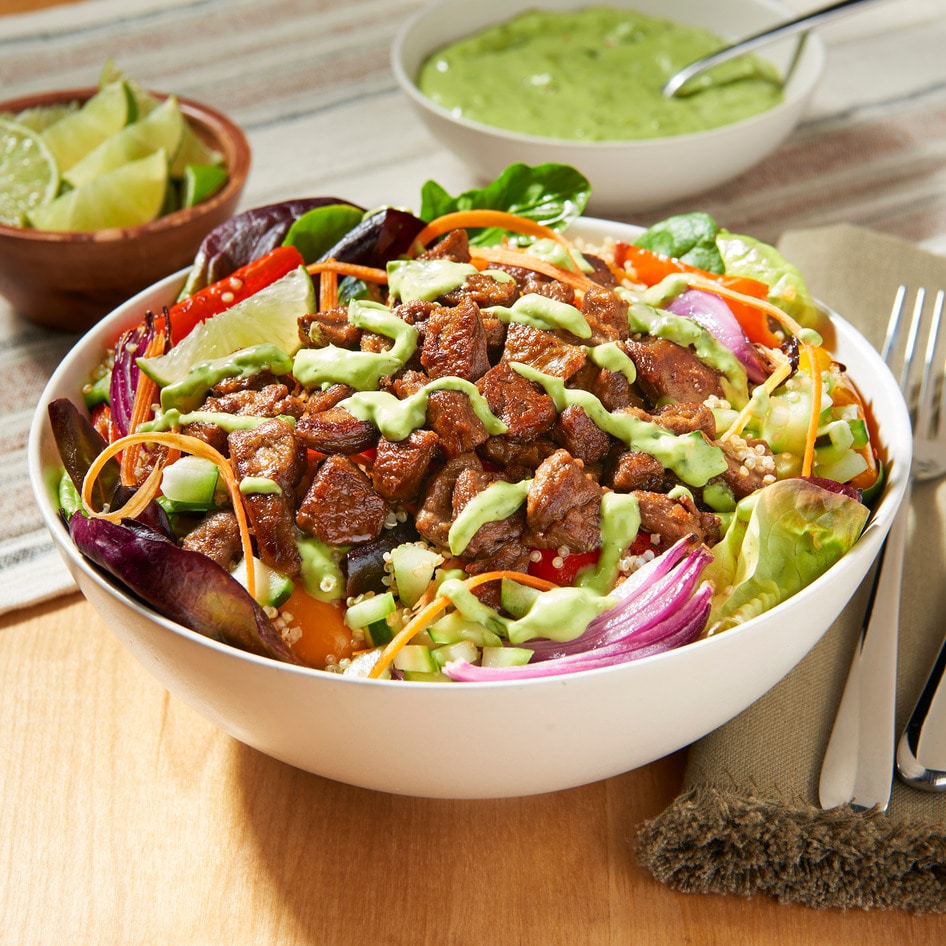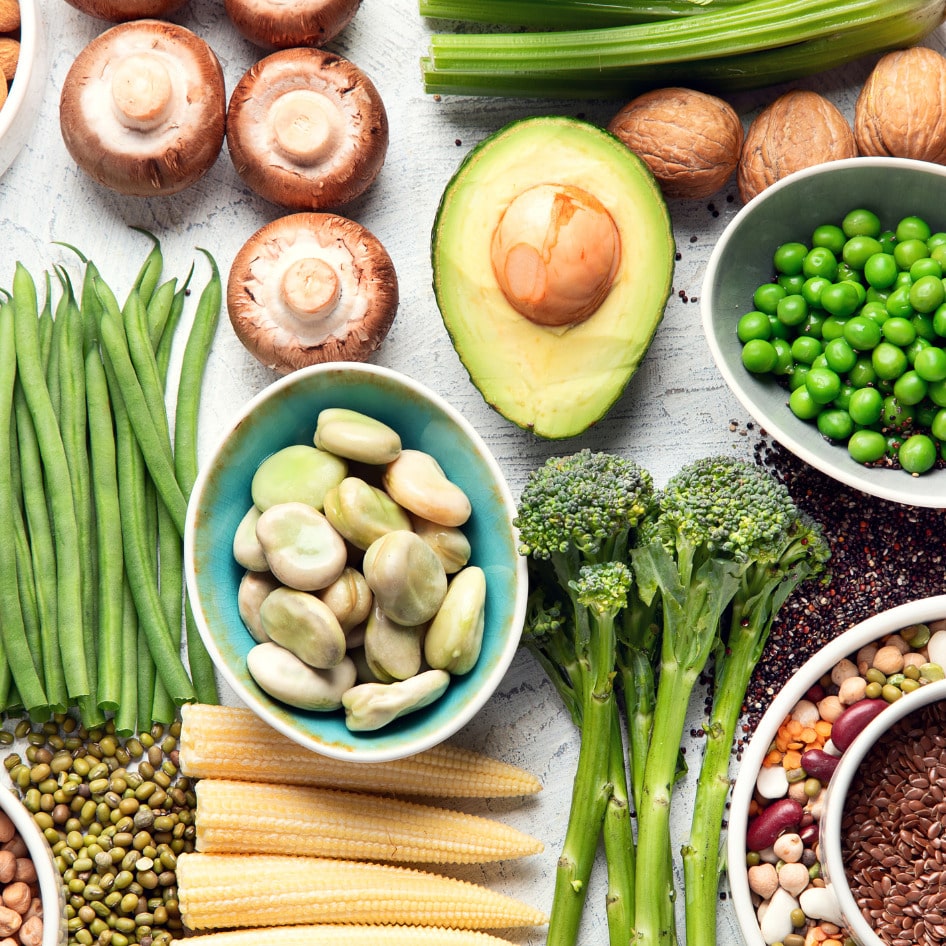Are humans meant to eat meat? It’s a long-standing debate. And the benefits of not eating meat continue to make the case for a plant-based diet.
Adding credibility to the argument that humans are not meant to consume animals are the voices of physicians such as cardiologist William C. Roberts, who writes, “Although most of us conduct our lives as omnivores, in that we eat flesh as well as vegetables and fruits, human beings have characteristics of herbivores, not carnivores.”
And consumers are taking notice. Plant-based substitutes for meat, eggs, and dairy are more readily available at grocery stores today than ever before. Meanwhile, restaurants—even the large fast-food chains—have increased their vegan options.
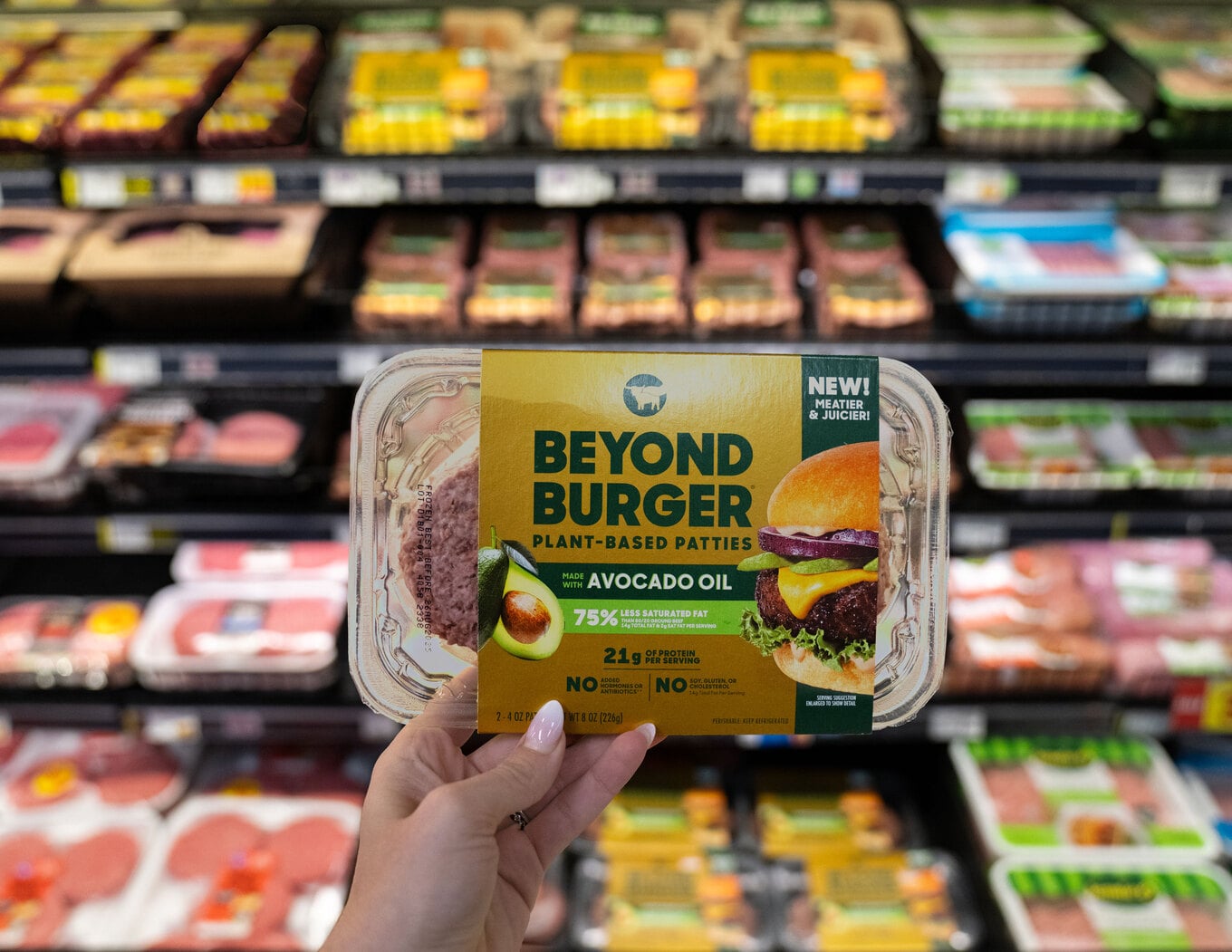 Beyond Meat
Beyond Meat
The popularity of foods that are better for you, the animals, and the planet is predicted to propel the market for plant-based alternatives by more than 400 percent to sales of $162 billion by 2030.
How much protein do you need to eat every day?
Protein is essential to support health and wellness, and the amount of protein you require depends on a variety of factors, including your age, activity level, and muscle mass.
In general, the recommended dietary allowance for protein is .8 grams per kilogram (2.2 pounds) of body weight. You can calculate your protein requirement by dividing your weight in pounds by 20 and then multiplying that number by seven. Thus, someone weighing 150 pounds would need 52 grams of protein each day.
 Getty
Getty
According to the Harvard Medical School, however, most adults get too much protein, consuming about 16 percent of their daily calories, though a relatively active adult needs only 10 percent.
Excellent plant-based sources of protein include whole grains, beans, and other legumes, nuts, and vegetables. Studies continue to show that plant protein is far healthier than animal protein, with the latter being associated with lower mortality.
BECOME A VEGNEWS VIP: Get exclusive product deals, freebies, and perks galore!
Meat-free and low-meat diets
The medical community continues to recommend reducing or eliminating meat consumption to lower the risk of health issues such as cancer, with red meats (flesh from mammals) and processed meats regarded as the unhealthiest.
The types of meat-free and low-meat diets include:
- Lacto-vegetarian diets: exclude meat from all animals, eggs, and foods that contain them. Dairy products—such as milk, cheese, yogurt, and butter—are included.
- Ovo-vegetarian diets: exclude meat from all animals and dairy products but include eggs
- Lacto-ovo vegetarian diets: exclude meat from all animals but allow dairy products and eggs
- Pescatarian diets: exclude meat from all animals except fish; dairy and eggs are included
- Vegan diets: exclude meat from all animals, eggs, dairy products, and honey
Health benefits of not eating meat
The word on consuming animal products is not encouraging for meat-eaters. Not only are red and processed meats considered to be the unhealthiest, but they can lead to premature death. Moreover, a recent study at Oxford University found that consumption of red meat, processed meat, and chickens and turkeys was linked to a greater risk of nine different non-cancerous illnesses, including heart disease, diabetes, and pneumonia.
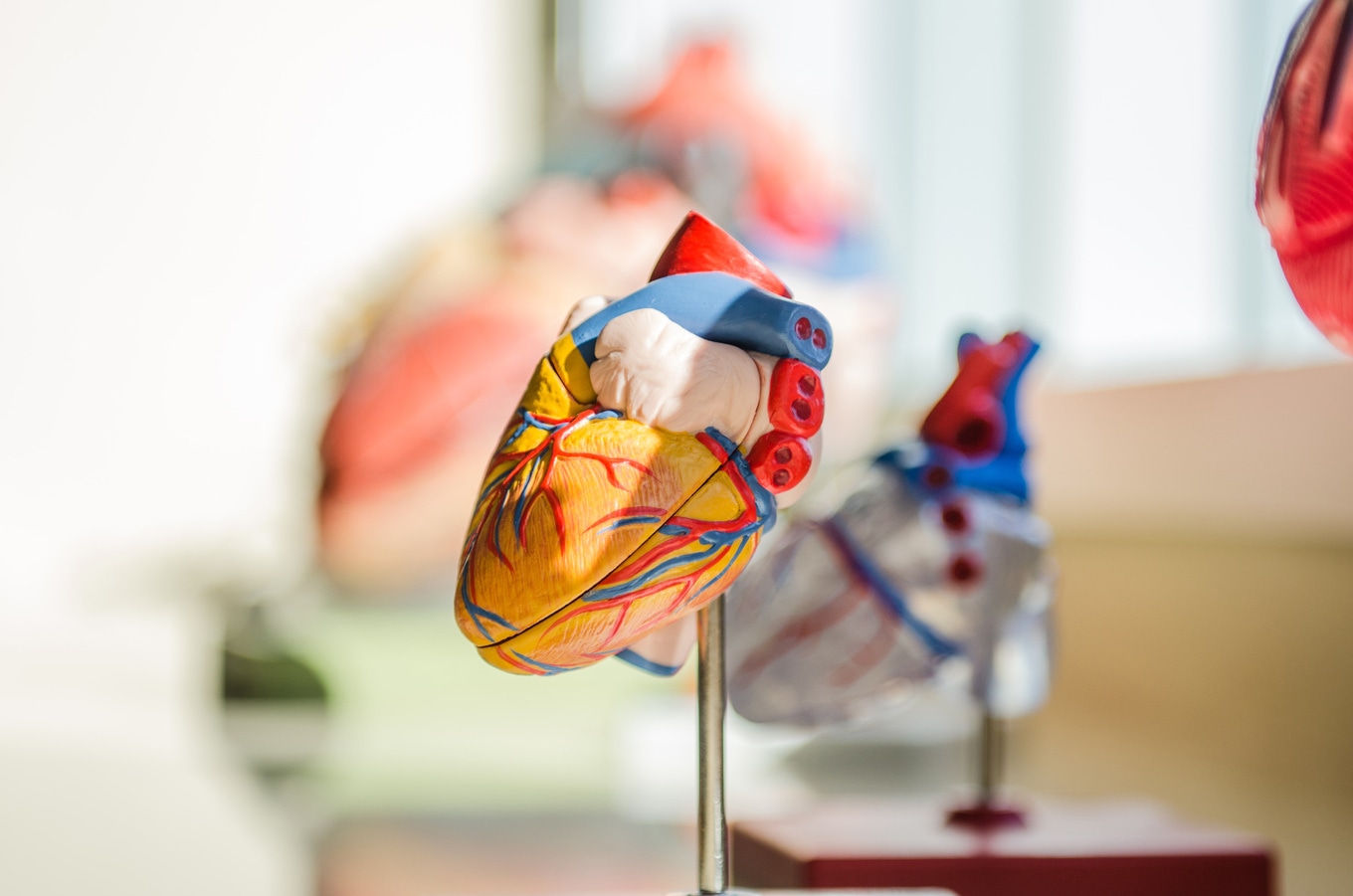 Canva
Canva
While recommendations to eat less meat are often prompted by animal agriculture’s role in climate change, it is clearly also in your body’s best interest to embrace plant-based eating. As T. Colin Campbell, PhD, points out, eliminating all meat, eggs, and dairy actually treats or reverses disease. “Heart disease begins to clear up in a week or two,” he says. “Diabetes as well. It is a remarkable effect if you get rid of all animal products. No animal food. The diet should be whole plant-based foods, being careful not to add in oil or sugar. If you give a group of people this food for 10 or 15 days, almost every single person sees a benefit.”
Health benefits of a plant-based diet
Studies continue to show that removing meat from your diet is not only better for the animals and the planet but also for your health. Making the switch from consuming meat to a mostly or completely plant-based diet can help your body in numerous ways.
1 It’s heart-healthy
According to the Physicians Committee for Responsible Medicine, a plant-based diet is good for your heart. Vegetarian diets, which exclude meat, and vegan diets, which exclude all animal products, have been linked to a reduced risk of heart disease.
2 Reduces your risk of stroke
Eating higher amounts of healthy plant-based foods—such as leafy greens, whole grains, and beans—and lower amounts of foods like refined grains, potatoes, and added sugars may lower your overall stroke risk by up to 10 percent, according to Harvard Health.
3 Improves blood sugar control and insulin response
Research suggests that cutting out meat and adopting a healthy plant-based diet is better than medication for the prevention and management of type 2 diabetes, the most common form of the disease.
 Cottonbro Studio/Pexels
Cottonbro Studio/Pexels
4 May help protect against certain cancers
Consuming meat and dairy foods has been linked to an increased risk of developing cancer. Plants, on the other hand, produce many phytochemicals (plant chemicals) that seem to protect cells from damage. As a result, eating a plant-based diet may offer significant protection from cancer. Another recent study by researchers at Oxford University found that vegetarians have a 14-percent lower chance of developing cancer than those who eat meat and that pescatarians had a 10-percent reduced risk. And if you’re thinking that vegans have the lowest rates of cancer of any diet, you’re right!
5 Lowers your blood pressure
A recent review of studies on the link between diet and hypertension found that compared to people who eat meat, a vegetarian diet lowered systolic blood pressure by an average of 2.66 mmHg and diastolic blood pressure by 1.69 mmHg. Those eating a vegan diet showed an even greater reduction of 3.12 mmHg systolic and 1.92 mmHg diastolic blood pressure. (Interestingly, subjects eating a lacto-ovo-vegetarian diet, which allows dairy products and eggs, showed no changes in diastolic blood pressure reduction.)
6Improves gut health
Microorganisms in your gastrointestinal tract play a vital role in your overall health. The high fiber content found in a diet based mostly on whole foods feeds our gut bacteria (and remember, animal products contain zero fiber), which increases the growth of beneficial bacteria that reduce inflammation and the risk of cardiovascular disease, according to recent data. Fiber also increases short-chain fatty acids linked to improved immunity and better intestinal function. All of these suggest that what you eat contributes to healthy microbiome diversity more than any other factor, giving a plant-based diet a definite advantage in ensuring optimal gut health.
7 May help protect against dementia
A growing body of evidence shows that some antioxidants in plants can effectively scavenge free radicals, protect cells, delay aging, and prevent diseases related to aging—including dementia. In particular, Alzheimer’s disease, the most common form of dementia, is closely related to the pathological changes of nerve cells that develop and persist as we age. Antioxidants, which are mostly found in plant foods, can protect various components of the nervous system and can have a positive impact on interventions to prevent and alleviate Alzheimer’s disease.
 House Foods
House Foods
Meat-free protein sources
Despite the popular myth that plant-based protein is difficult to find, there are in fact many excellent vegan sources. Here are just a handful of foods that contain high amounts of protein per serving.
1 Seitan
Made from wheat gluten, seitan is a blank slate, ready to soak up any flavors, which is one reason it’s used as a mock meat. A 3-ounce serving usually contains 15 to 21 grams of protein.
2 Tofu
Tofu is enormously versatile, used in everything from stir-fry to smoothies. A half cup of raw, firm tofu contains about 10 grams of protein.
3Tempeh
Like tofu, tempeh is made from soy. This Indonesian staple packs a whopping 19 grams of protein per 100 grams. Sturdy and versatile, tempeh makes a great addition to sandwiches, breakfast spreads (tempeh bacon, anyone?), salads, and more.
4 Lentils
Lentils are among the world’s oldest health foods. Adding a half cup of cooked lentils to soups, curries, tacos, or salads adds about 12 grams of protein to your meal.
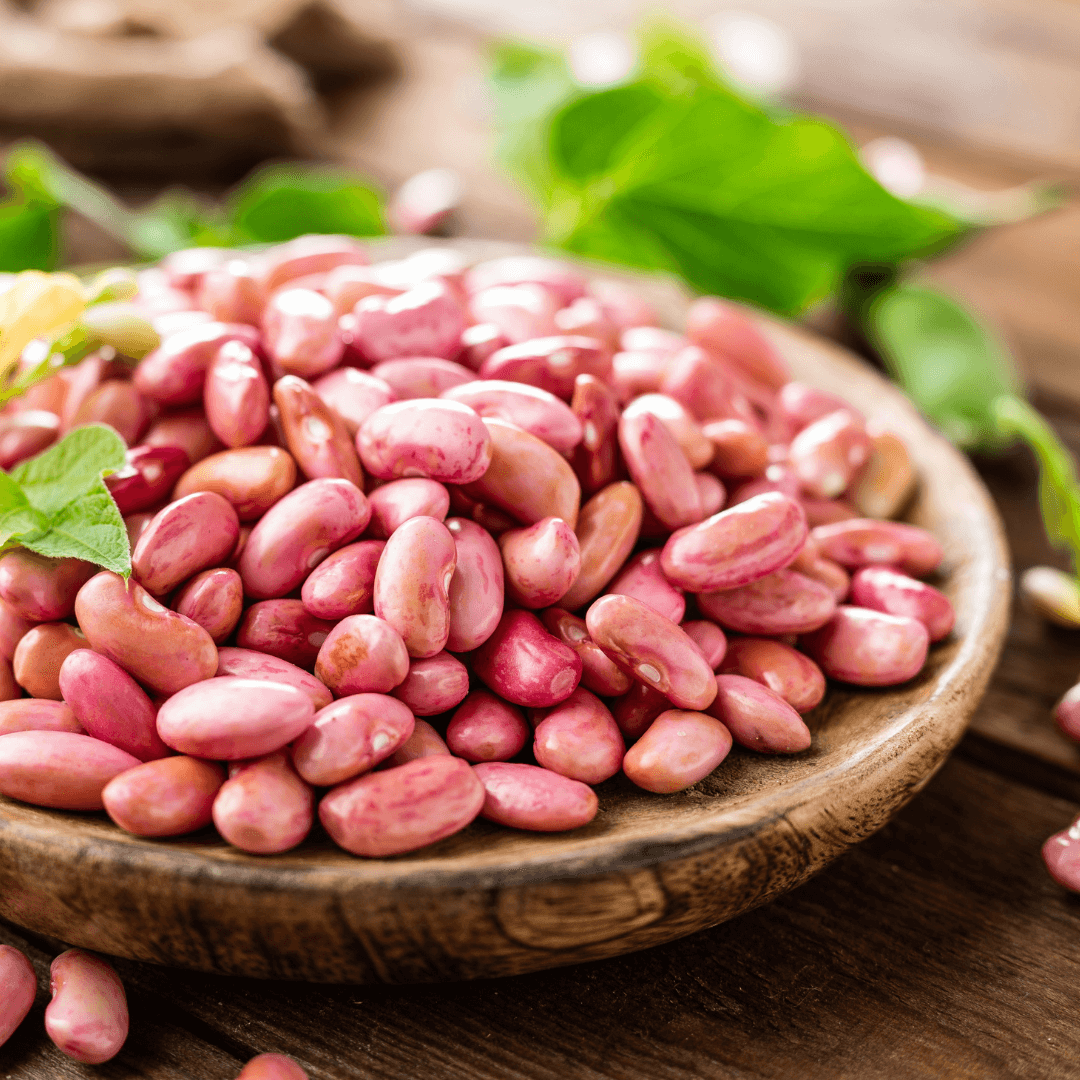 Canva
Canva
5 Beans
Just a half cup of any bean variety provides 6 to 9 grams of protein, plus 6 to 8 grams of fiber to keep you full.
6 Chickpeas
Chickpeas are another versatile food (aquafaba, anyone?) that is high in protein, containing around 7.5 grams per half cup.
7 Quinoa
One cup of this ancient grain contains around 8 grams of protein and all the essential amino acids, classifying it as a complete protein.
 Getty
Getty
Tips for eating less meat
Eating meat is a habit and like any habit, it can take a little time to change it. Here are a few tips to make it easier to reduce your meat intake.
1Start with a cookbook
Find vegan cookbooks with recipes that appeal to you, then gradually replace the meat dishes you enjoy with plant-based foods.
2Mind your breakfast
Breakfast is an easy meal to make meatless, so enjoy a bowl of home-cooked oatmeal topped with fruit, nuts, and non-dairy milk; scrambled tofu with spinach; or make a veggie breakfast burrito.
3Eat your fruits and veggies
Eat more fruits and veggies at each meal. These are not only healthy, but they’ll satisfy your hunger and make you feel fuller.
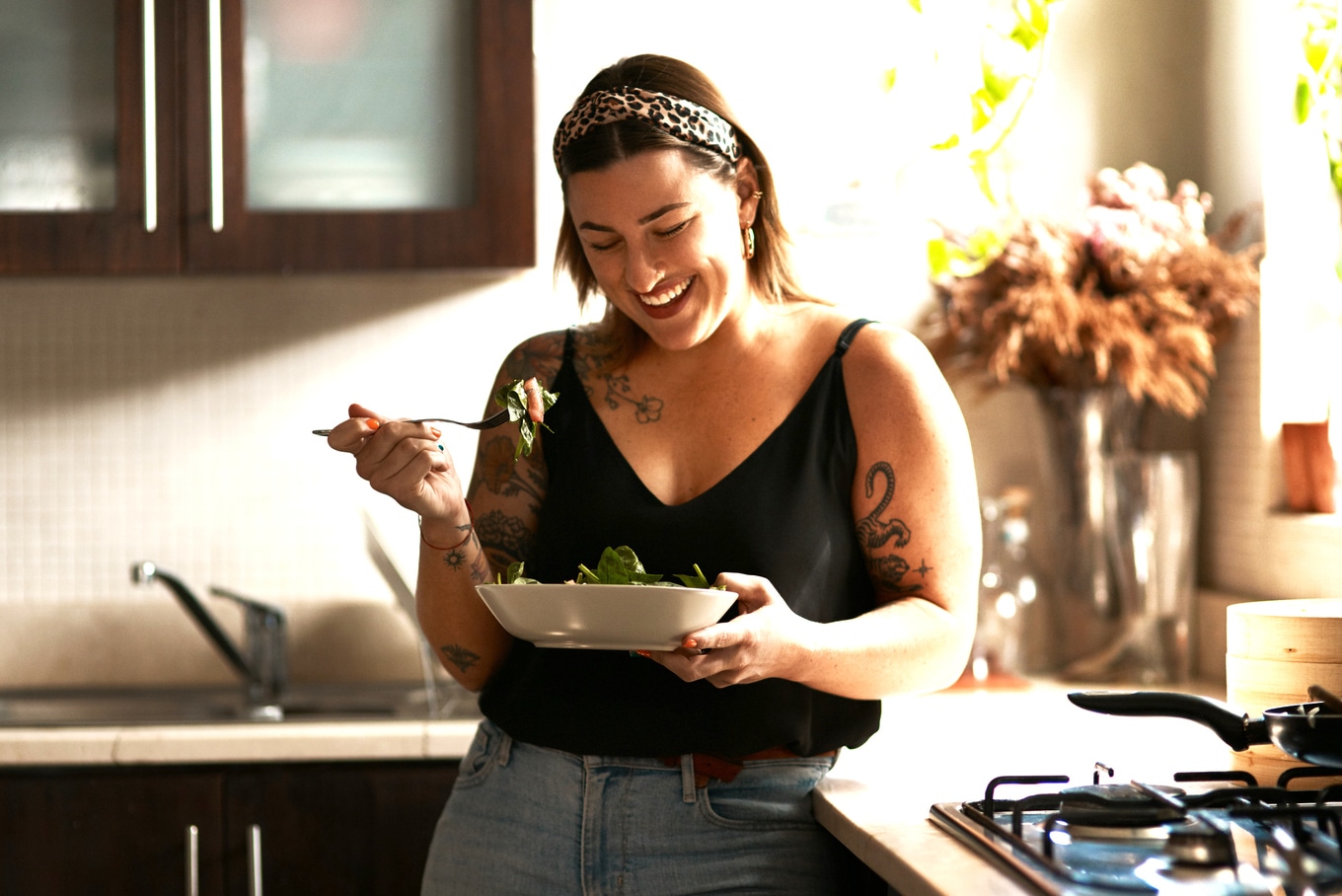 Getty
Getty
4Don’t forget about salads
Big salads—filled with a variety of fresh greens, nuts, and beans and topped with a vinaigrette—are surprisingly delicious and make a perfect meal.
5Moderation is key
Use vegan meats sparingly. They are highly processed and generally loaded with sodium, but they can satisfy the occasional meat craving.
6 Talk to your doctor
Keep in mind that changes to your diet can make you fall short on some vitamins, such as B12 and D, so as you eliminate animal products, ask your doctor about which supplements you might need to take.
7Feel better, every day
Going meatless isn’t just for Mondays, and as you continue cutting down on your meat consumption each day of the week, you’ll likely feel better about your health, the animals, and the planet.
For more plant-based stories like this, read:
JUMP TO ... Latest News | Recipes | Guides | Health | Subscribe



